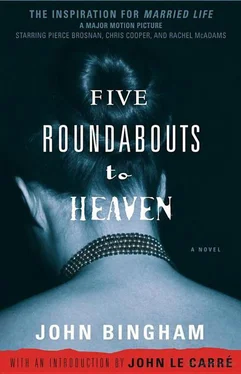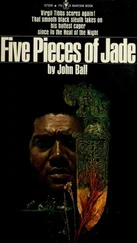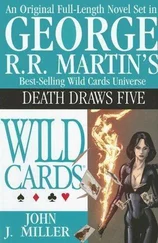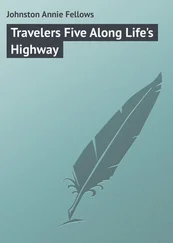John Bingham - Five Roundabouts to Heaven
Здесь есть возможность читать онлайн «John Bingham - Five Roundabouts to Heaven» весь текст электронной книги совершенно бесплатно (целиком полную версию без сокращений). В некоторых случаях можно слушать аудио, скачать через торрент в формате fb2 и присутствует краткое содержание. Жанр: Криминальный детектив, на английском языке. Описание произведения, (предисловие) а так же отзывы посетителей доступны на портале библиотеки ЛибКат.
- Название:Five Roundabouts to Heaven
- Автор:
- Жанр:
- Год:неизвестен
- ISBN:нет данных
- Рейтинг книги:4 / 5. Голосов: 1
-
Избранное:Добавить в избранное
- Отзывы:
-
Ваша оценка:
- 80
- 1
- 2
- 3
- 4
- 5
Five Roundabouts to Heaven: краткое содержание, описание и аннотация
Предлагаем к чтению аннотацию, описание, краткое содержание или предисловие (зависит от того, что написал сам автор книги «Five Roundabouts to Heaven»). Если вы не нашли необходимую информацию о книге — напишите в комментариях, мы постараемся отыскать её.
Five Roundabouts to Heaven — читать онлайн бесплатно полную книгу (весь текст) целиком
Ниже представлен текст книги, разбитый по страницам. Система сохранения места последней прочитанной страницы, позволяет с удобством читать онлайн бесплатно книгу «Five Roundabouts to Heaven», без необходимости каждый раз заново искать на чём Вы остановились. Поставьте закладку, и сможете в любой момент перейти на страницу, на которой закончили чтение.
Интервал:
Закладка:
I saw her standing, almost symbolically, at the sink, a woman who had been faced with the greatest temptation which a married woman can encounter. But because her conception of duty, of what is fair and decent, was so strong, she had won her struggle.
I suddenly flung the dishcloth over the back of a chair, and murmured an apology and went out of the kitchen.
I was nauseated by my own actions. “Beatrice dear,” I had called her. “I wish I could advise you otherwise,” I had said. And with it all, I had spoken in a low, regretful tone, as though the one thing I longed for was to be able to tell her something different. I went into the drawing room, and paced up and down in front of the fireplace.
I couldn’t go on with it.
I was not as tough as I thought I was. This was the invisible X, the unseen factor which was going to upset my plans.
I had the power to make three people happier than they had ever been before, and one person reasonably happy. As is so often the case with ruthless people like myself, I was swept by a wave of the most revolting sentimentality.
I conjured up mental pictures of Bartels, with his gentle smile, and quiet good nature, and diffident manner; Bartels, the unsuccessful wine salesman, traipsing round the countryside, longing for Lorna, whom he believed to be in love with him, and who would certainly never let him see that she was not.
I thought of Beatrice, whose heart called out for the strong masculinity of John O’Brien; Beatrice who was fundamentally so good that she was prepared to sacrifice her own happiness rather than harm, as she thought, a devoted and dependent husband.
Even the forceful and sturdy John O’Brien came in for his share of my pity: John, fundamentally decent, too, who was prepared to stand by Beatrice’s decision, whatever the cost to himself. John, the good-humoured, the generous, the kind.
The wave of sentimentality receded.
In its place I felt quite cool. I lit a cigarette, and threw the match in the fireplace, and stood smoking and looking out of the window. Bartels had apparently finished his work on the trellis, and must have gone down to the vegetable garden, for he was no longer in sight.
I had never imagined that I would be prepared to sacrifice my own ambitions for anybody else, not even for Beatrice and Bartels.
But that is what I now proposed to do.
I walked to the door and into the passage and along to the kitchen. My heart was beating a little faster than usual, but I was determined. Beatrice had finished the drying-up, and was going over the floor with a mop. The back door was open. The dog Brutus lay dozing on the mat.
I stood by the kitchen door in silence for a few seconds, watching her.
“Beatrice,” I said, at last, and now I had come to it, the word had to be forced through my lips. She looked up, but said nothing.
“Beatrice,” I said again. She stopped mopping the floor and looked round at me. A wisp of hair had fallen over one eye. She looked listless and tired.
“Yes?”
Curiously enough, at that moment I felt a surge of happiness within me. Even at this late date, I can still recall a faint flavour of it. It was the unalloyed, pure joy which only a giver can know.
For a second I hesitated, looking upon Beatrice’s unhappy face and anticipating the wild happiness I was going to bring to her. Yet I wasn’t feeling smug, or virtuous: just happy. It was most odd.
But the dog Brutus raised his head.
I heard the sound of footstep, then a noise as Bartels kicked some mud off his shoes on the scraper. Then he came into the kitchen. And I thought of him, with Lorna, his wide, colourless lips pressed on hers; his deep musical voice, in such contrast to his appearance, murmuring endearments. I imagined him married to her and all that that implied. It was too much for me.
“Beatrice,” I said loudly, “let’s go along to the local for a drink at twelve. What about it?”
If Bartels had stayed outside two minutes more, so much might have been changed.
We did not go to the local. Beatrice said she had to stay and watch the joint. It was my joint. I always brought a joint for the weekends. There is no point in being in the hotel business if one cannot scrounge a reasonably sized joint for oneself now and again.
But Bartels asked me to come for a stroll across the fields with Brutus. I went with him willingly enough, for the wave of jealousy was still around me, and the foolish, generous weakness had been replaced by the old well-known feeling of determination to fight for what I wanted by fair means and, if necessary, by foul ones-in that order.
I thought I did quite well during that walk, for I made him promise that he would not leave Beatrice until Easter, pointing out to him that at that time she would be spending a fortnight with her parents in Falmouth, and that the blow would be softened if she were with her family.
He promised readily enough.
In view of what he had in mind, I am not surprised.
I recall now, incidentally, how kind he was to the dog Brutus during that walk. Indeed, he had been unusually kind to the dog at breakfast, feeding him with titbits from the table, a thing he never normally allowed, and caressing him.
So now, upon that beautiful February morning, Bartels led the dog along hedgerows where a scent of rabbits could perhaps be detected, encouraging him with soft words, and sometimes calling him for a pat. And once we went through a small copse, because sometimes a cock pheasant lurked in the undergrowth.
The dog Brutus seemed for a space to regain some of his youthful vigour, and though he could not move fast, he showed all his former enthusiasm, and snuffled in the hedges and among the briars, tail wagging; and once, when he put a rabbit up, he lumbered after it excitedly, until shortness of breath made him abandon the chase after a few yards.
Bartels was quieter than usual, and I noticed in the bright sunlight certain lines upon his face, and a suggestion of a shadow under the eyes, which I had not seen before.
He talked to me of his future plans for Lorna and himself; how Lorna, at least for a while, would have to continue with her dressmaking.
“But she says she doesn’t mind,” he said.
“She is not the sort of woman who would,” I answered. And I thought that if I had my way, and I was sure I would, Lorna would never make another dress as long as she lived, except for her own pleasure.
“But I hope it won’t be for long,” said Bartels.
“You do?”
“She is the kind of woman who makes a man want to conquer the world for her.”
“She is?”
I thought how odd it was that love could make even an intelligent man like Bartels fall back upon platitudes, cliches, and worn-out phrases to express his feelings.
“When I marry Lorna, I shall insist upon a better position in the firm. Something at head office. By God, I’ve earned it. And I shall demand it.”
“You will? Supposing they don’t give it to you?”
“I’ll make them give it to me.”
“Splendid.”
“There’s no reason why I should not be a director one day.”
“None at all. There is no reason at all why you should not be a director. I hope you will be. I think you probably will be, before you have finished.”
It was one of those broadly reassuring things which one says to failures. With men who are likely to succeed, you can afford to discuss the probabilities and chances: you can’t do that with failures.
The idea that Bartels would ever become one of the heads of the firm was, of course, laughable. He was a failure on the road; he had neither the organizing ability nor the assertiveness to force his way to the top.
The likelihood that the diffident and reserved Bartels could even compel his firm to give him a better job seemed small enough to me. I reckoned that it was about all he could do to hold his position at all. But my words elated him.
Читать дальшеИнтервал:
Закладка:
Похожие книги на «Five Roundabouts to Heaven»
Представляем Вашему вниманию похожие книги на «Five Roundabouts to Heaven» списком для выбора. Мы отобрали схожую по названию и смыслу литературу в надежде предоставить читателям больше вариантов отыскать новые, интересные, ещё непрочитанные произведения.
Обсуждение, отзывы о книге «Five Roundabouts to Heaven» и просто собственные мнения читателей. Оставьте ваши комментарии, напишите, что Вы думаете о произведении, его смысле или главных героях. Укажите что конкретно понравилось, а что нет, и почему Вы так считаете.












